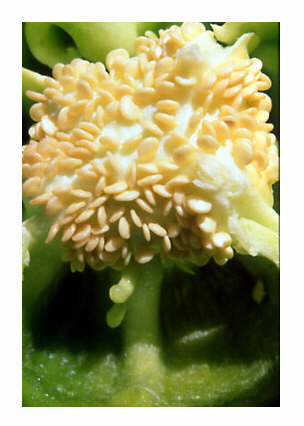 The first time I heard this problem expressed remains, for me, the best expression of it: Thornton Wilder's Our Town. The problem of Our Town is the tension between the long view (i.e., of the dead), which is 'more right' but has a tendency to minimize or mock our quotidian concerns, and the local view, which may forget about the great questions of existence but has a down-to-earth reality that is where we all want to live. Only the Stage Manager seems to be able to navigate both worlds, with both the wide perspective of the dead and a real caring for the living. When, in Act III, the dead Emily tries to return to the world of the living, she can't do it. "They're sort of shut up in little boxes, aren't they?" she says. Yet it is she who cannot adapt. With the knowledge that she has of life's transitory nature, and with the earnest desire to make each moment count, she is confronted by ordinary people, going through their ordinary lives, and she can't bear it. "I can't go on. It goes so fast. We don't have time to look at one another." She asks the stage manager, "Do any human beings ever realize life while they live it?-every, every minute?"
The first time I heard this problem expressed remains, for me, the best expression of it: Thornton Wilder's Our Town. The problem of Our Town is the tension between the long view (i.e., of the dead), which is 'more right' but has a tendency to minimize or mock our quotidian concerns, and the local view, which may forget about the great questions of existence but has a down-to-earth reality that is where we all want to live. Only the Stage Manager seems to be able to navigate both worlds, with both the wide perspective of the dead and a real caring for the living. When, in Act III, the dead Emily tries to return to the world of the living, she can't do it. "They're sort of shut up in little boxes, aren't they?" she says. Yet it is she who cannot adapt. With the knowledge that she has of life's transitory nature, and with the earnest desire to make each moment count, she is confronted by ordinary people, going through their ordinary lives, and she can't bear it. "I can't go on. It goes so fast. We don't have time to look at one another." She asks the stage manager, "Do any human beings ever realize life while they live it?-every, every minute?"
At first the Stage Manager answers "No." Then, after a pause, he says: "The saints and poets, maybe -- they do some."
The saints, the poets, and the Stage Manager
have the gift of living deliberately and fully in the world,
not despite the knowledge that all is evanescent, but, we think,
 because of it. They are able to embrace this moment fully, in its richness, and not let it disappear. Then again, saints and poets are notoriously bad at parties. They are so involved with the higher levels of their consciousness that, as Wilber himself notes, they are often poorly developed at lower ones. How do we move from the universal to the local, without losing our souls?
because of it. They are able to embrace this moment fully, in its richness, and not let it disappear. Then again, saints and poets are notoriously bad at parties. They are so involved with the higher levels of their consciousness that, as Wilber himself notes, they are often poorly developed at lower ones. How do we move from the universal to the local, without losing our souls?
I understand that with true, abiding compassion, the contemplative feels the pain of others much more viscerally than most people would, even while not attaching too much to her own. She is present, too, for great joy, and sucks the marrow from life not by seeking ever more intense thrills, but by seeing heaven in a wildflower. But understanding something is not the same as experiencing it. And I wonder: when the stakes are not everything, when our own personal and global tragedies do not mean the difference between fulfillment and frustration, life and death, are we really fully alive?

Two Zeek editors discuss running, spirituality, and the book Running the Spiritual Path
December, 2003
December, 2003
What is 'energy'? Is it nonsense?
Changes of season and changes of heart
or, The Opposite of Sex
Sex, drugs, and God in all
Douglas Rushkoff talks with Zeek about the future of Judaism
April, 2003
...and what to do about it
What my grandmother's suffering teaches
Life beyond the idea of limits
Why is it easier to see God in nature than in the city?
Being at one with Being
What's the right perspective, close up where everything matters, or from a distance,
where it doesn't?
November, 2003
October, 2003
James Turrell and the truth of light
April, 2003
Lost in Translation: A snapshot of the evansescent
October, 2003
August, 2003
July, 2003
July, 2003
March, 2003
February, 2003
January, 2003
December, 2002
August, 2002
July, 2002
August, 2001



Harvard Death Fugue
On the Exploitation of Bruno Schulz
James Russell
The Jews of Istanbul
Sara Liss
The Truth about the Rosenbergs
Joel Stanley
Thinking despite Doubt, Feeling despite Truth
Jay Michaelson
Two Rituals
Joshua Bolton
Hepster Advice
Jennifer Blowdryer
Josh Goes to the Hospital
Josh Ring
Archive
Our 400 Back Pages
Saddies
David Stromberg
Zeek in Print
Winter 03 issue now on sale
About Zeek
Events
Contact Us
Links
From previous issues:
More than This
Dan Friedman
Knowledge, Community, Irony, and Love
Jay Michaelson
With a Bible and a Gun
Samuel Hayim Brody